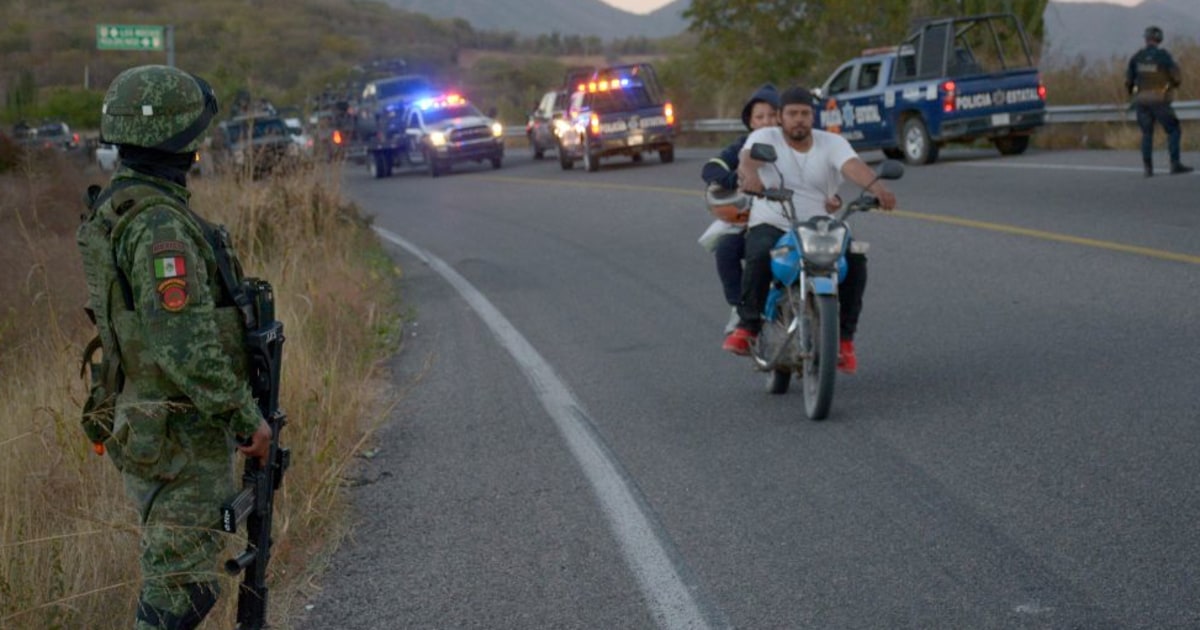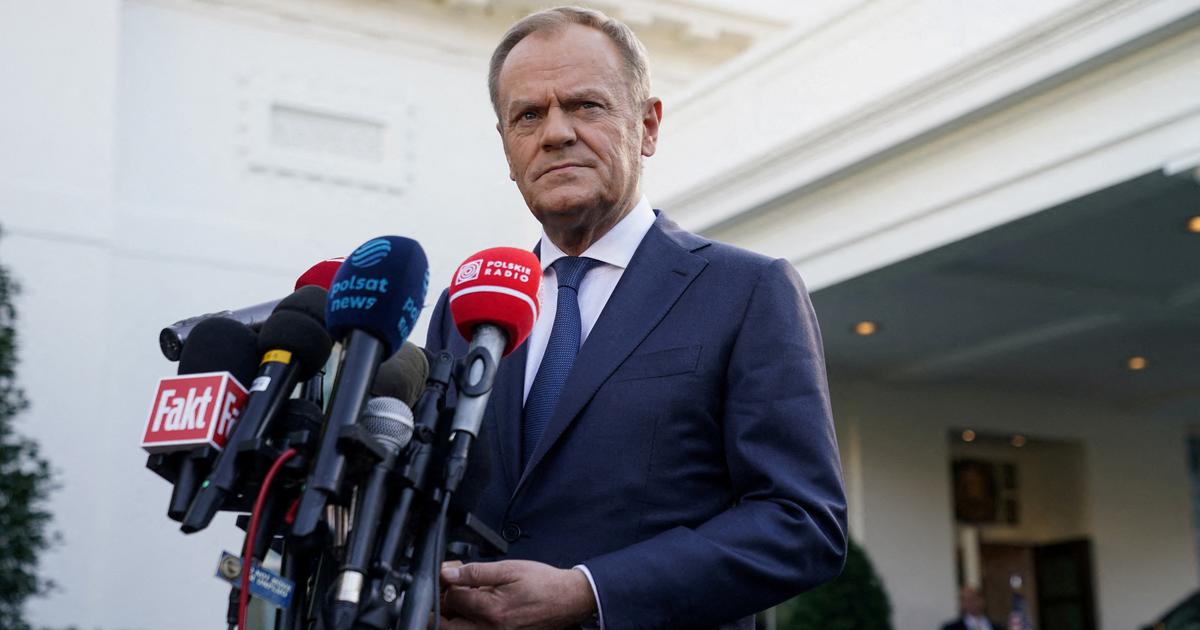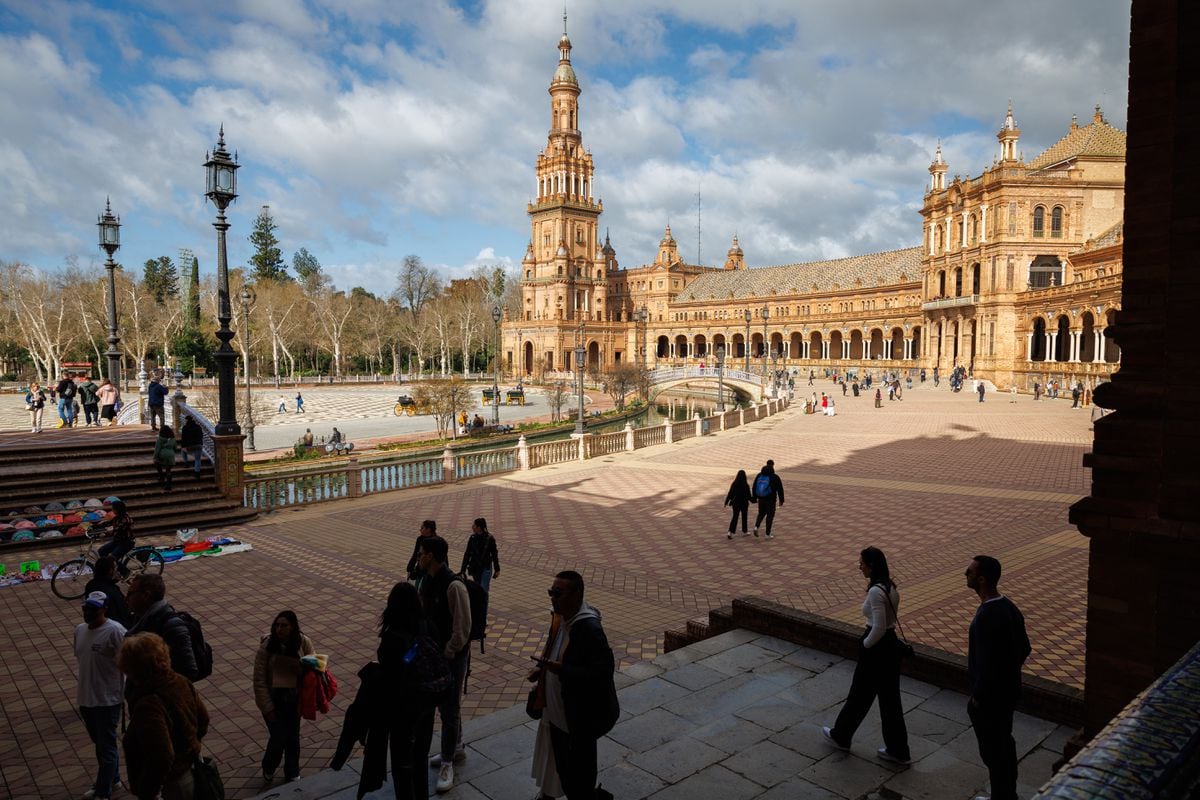A recent bilateral meeting between the Mexican Foreign Minister, Marcelo Ebrard, and the US Secretary of State, Antony Blinken.EVELYN HOCKSTEIN / AP
The program had millionaire resources and began at the end of George W. Bush's term, more than a decade ago. But that plan for cooperation in security matters between Mexico and the United States has not worked. Foreign Minister Marcelo Ebrard has buried the so-called Merida Initiative, which included aid of 3,000 million dollars to stop the violence and that failed or, in any case, was not enough to sustain the strategy to fight drug trafficking. The government of Andrés Manuel López Obrador, which has been trying to reformulate relations with Washington since Joe Biden took office at the beginning of the year, is now looking for an alternative path.
“The Merida Initiative is dead.
It doesn't work, ”Ebrard told
The Washington Post.
"Now we are in another era."
All options to stop the cartels have crashed.
This plan contributed to strengthening Mexico's military capacity, with the acquisition of airplanes, helicopters and equipment for the security forces, but since then neither the Administration of Felipe Calderón nor that of Enrique Peña Nieto has managed to alleviate the violence and bloodshed. .
Now Mexico is facing another crisis and is looking into a new drug war that is hitting mainly the north of the country.
And the authorities are looking for a new approach from the hand of the United States.
More information
Kamala Harris: "The causes of migration will not be solved in a two-day trip"
Economy, security and sovereignty: the fronts that strain the relationship with the United States due to the visit of Kamala Harris
Mexico accepts the Merida Initiative as approved by the US
Security policy is one of the fronts that most concerns the neighboring country and the cornerstone of bilateral relations. Donald Trump's tenure was marked by pressures related to migration and, at the same time, by a lack of interest in putting the fight against organized crime on track. Now Washington's sensibilities are different. This Thursday Ebrard spoke by phone with the Secretary of State, Antony Blinken. “It was a very good conversation, as we have always had a good relationship, fortunately: we talked about the main topics of interest in the bilateral relationship and what we should do or what we propose for the next steps. I will be informing you of how we are progressing. The idea is to build a common vision of both governments on various issues. We have already been working towards it ”,reported the Secretary of Foreign Relations.
Blinken called the call "good and productive", which focused on cooperation between the United States and Mexico "to support a prosperous and secure future for everyone in the region." In May, Juan González, Biden's envoy for Latin America, met with the Mexican authorities to outline a program that includes “reducing arms and narcotics trafficking, reducing the violence caused by organized crime, addressing addictions as a problem. of public health and attack the finances of the criminal organizations that operate in the two countries ”. Then, in early June, there was Kamala Harris's trip to Mexico. It was a whirlwind visit,But in his meeting with López Obrador he sealed a framework agreement to address the causes of migration in Central America and spoke of the security problems that concern the White House.
The new security strategy has yet to be defined. However, the Foreign Ministry has stated on several occasions that it pursues a broad conception, in line with the philosophy of the president, contrary to the indiscriminate use of force or the display of military power. During his six-year term, the approach changed radically compared to the previous period. It is true that under the mandate of Peña Nieto the arrests and harassment of criminal structures intensified. 120 drug bosses who were on the front lines were arrested, including Joaquín
El Chapo
Guzmán, leader of the Sinaloa cartel. But that did not solve the problem of violence.
The current government's turnaround also cost López Obrador criticism from a sector of US diplomacy, led by former ambassador to Mexico Christopher Landau, who sees passivity in his tone and achievements against organized crime. To this is added that the arrival of Biden to the White House, last January, coincided with the exoneration by the Mexican Prosecutor's Office of former Secretary of Defense Salvador Cienfuegos. The military man had been arrested in Los Angeles at the end of 2020 and accused by the DEA of ties to drug trafficking. Mexico negotiated his extradition and, in a matter of weeks, the case ended in nothing.
That episode contributed to straining relations.
However, the two countries need each other and their representatives have been highlighting for months the good tone of the talks held so far.
Good intentions are the first step, but the outlines of the new plan remain to be outlined once the Merida Initiative is buried.
At the moment, both in Mexico and Washington all use the same formula: "You need to build a common vision."
Subscribe here
to the
newsletter
of EL PAÍS México and receive all the informative keys of the current situation of this country

/cloudfront-eu-central-1.images.arcpublishing.com/prisa/JK6DU5G3KC3YPXSIKRXW6JZAQA.jpg)







/cloudfront-eu-central-1.images.arcpublishing.com/prisa/MKPN47JEBUDZRZALPGTTAHCT64.jpg)





